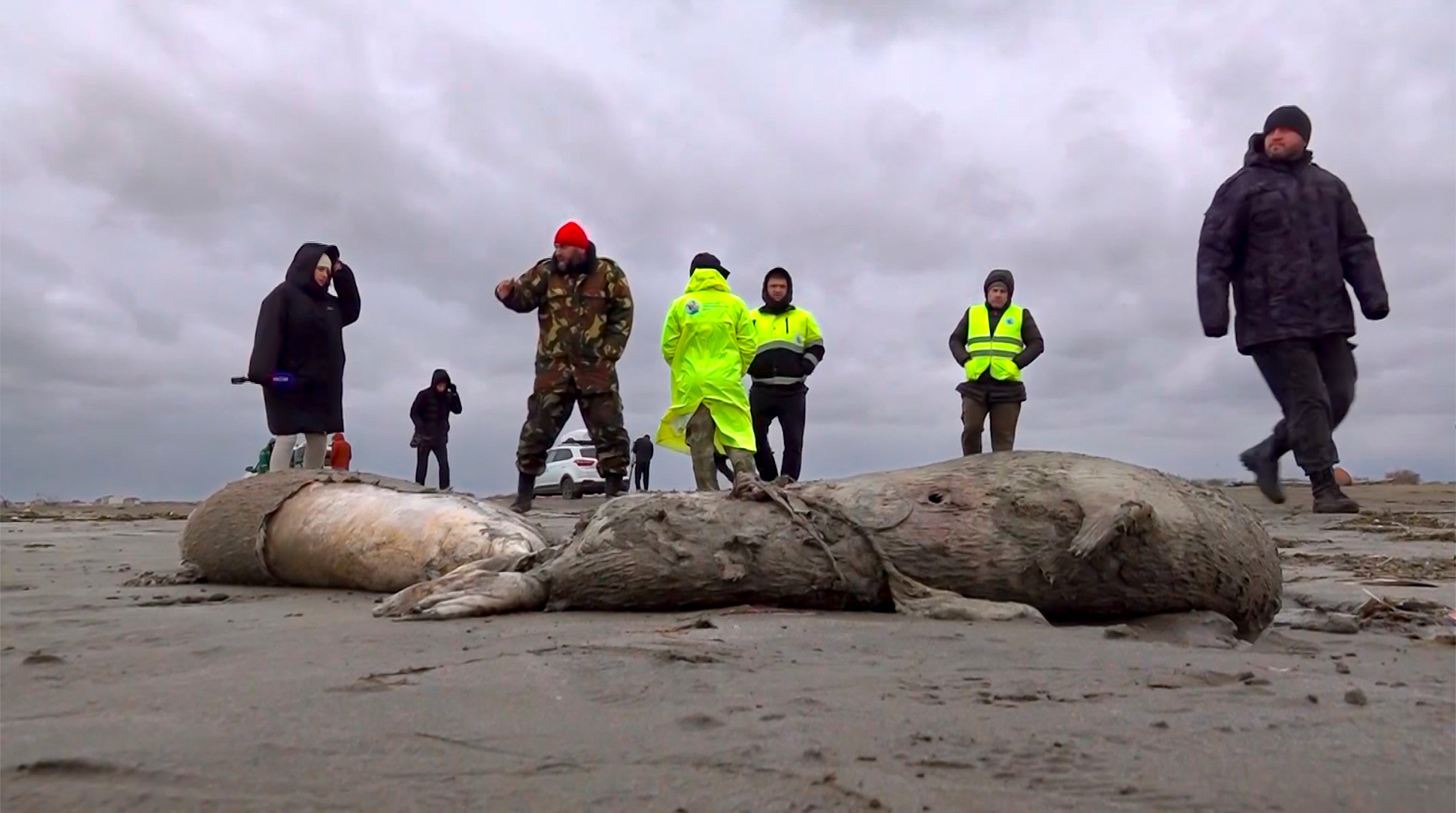Russia: Mass seal death likely due to oxygen deprivation
A top Russian environmental official said Monday that the thousands of dead seals that washed up on Russia’s Caspian Sea coast likely died from oxygen deprivation

Your support helps us to tell the story
From reproductive rights to climate change to Big Tech, The Independent is on the ground when the story is developing. Whether it's investigating the financials of Elon Musk's pro-Trump PAC or producing our latest documentary, 'The A Word', which shines a light on the American women fighting for reproductive rights, we know how important it is to parse out the facts from the messaging.
At such a critical moment in US history, we need reporters on the ground. Your donation allows us to keep sending journalists to speak to both sides of the story.
The Independent is trusted by Americans across the entire political spectrum. And unlike many other quality news outlets, we choose not to lock Americans out of our reporting and analysis with paywalls. We believe quality journalism should be available to everyone, paid for by those who can afford it.
Your support makes all the difference.A top Russian environmental official said Monday that the thousands of dead seals that washed up on Russia's Caspian Sea coast likely died from oxygen deprivation.
Officials in the republic of Dagestan, which has a long coastline on the world's largest inland body of water, said this week that 2,500 or more seal corpses have been found recently.
Svetlana Radionova of the natural resources watchdog agency Rosprirodnadzor said on Russian state television that hypoxia is being seen as the most likely cause and she said that scientists are investigation whether natural gas emissions in the Caspian could account for low oxygen.
The Caspian Sea has extensive natural gas reserves that are being tapped increasingly.
Radionova said a similar mass death of seals — about 2,000 — was recorded in Dagestan and neighboring Azerbaijan in 2000.